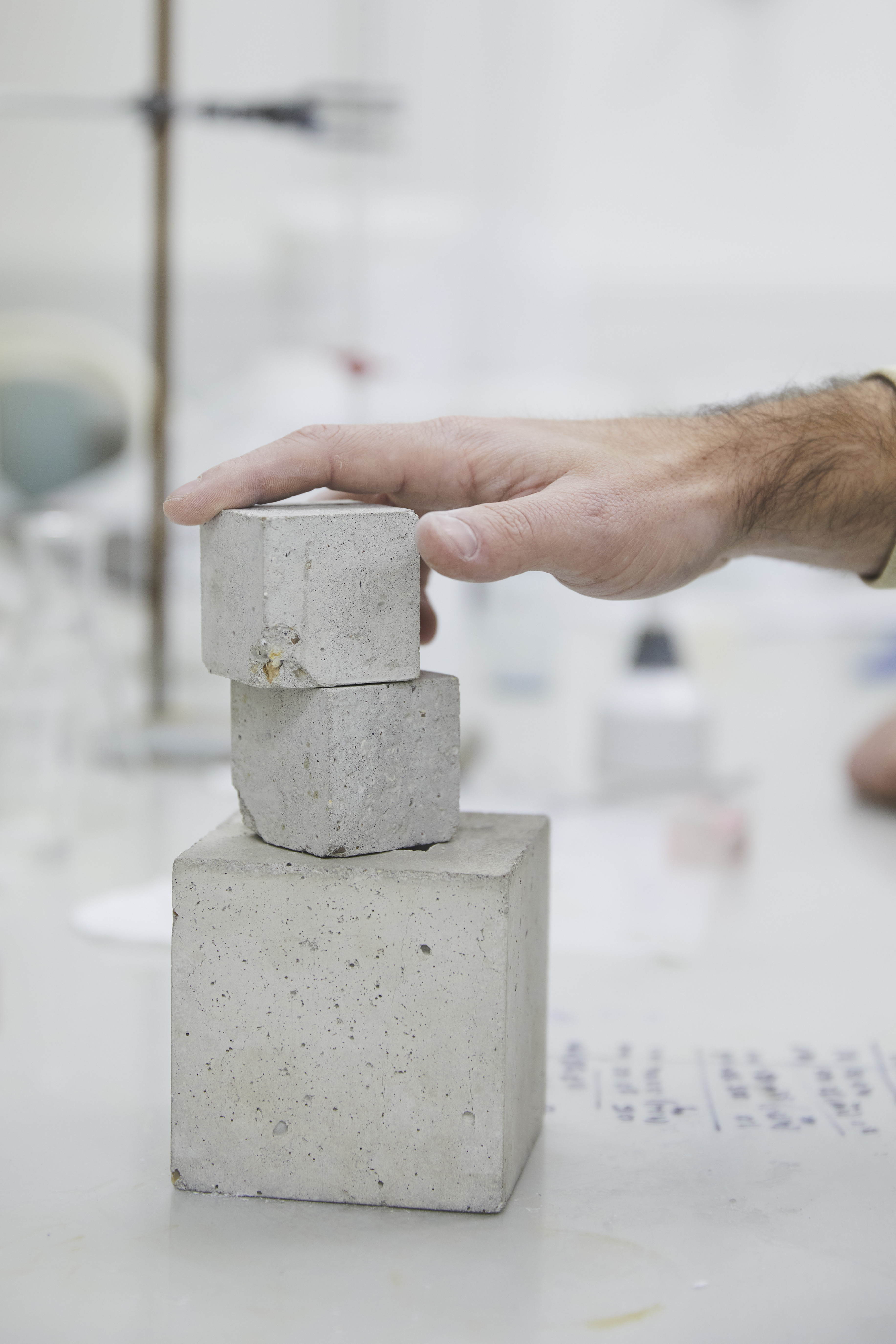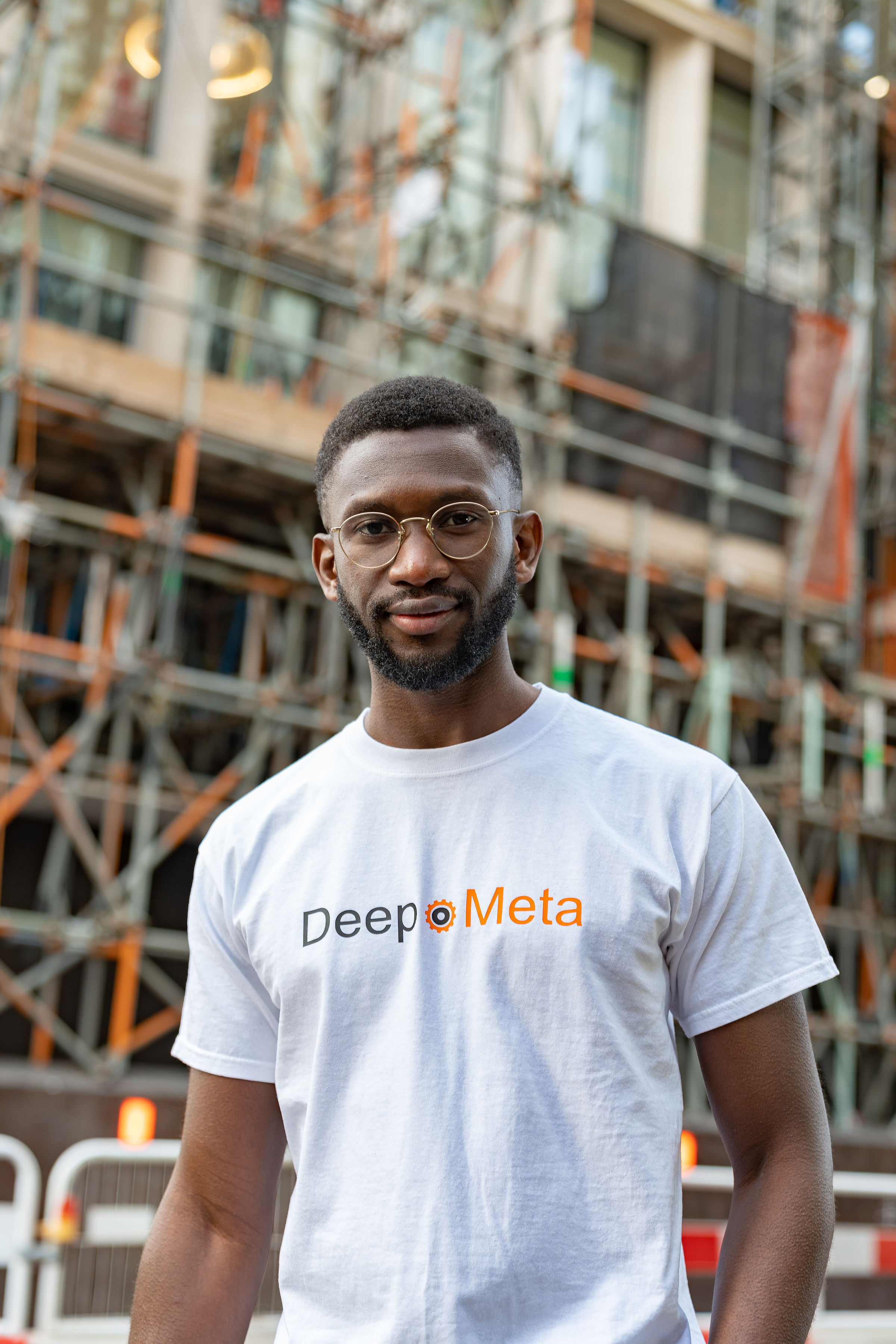Tackling climate change with innovation

The technologies exist today to stop climate change in its tracks. What comes next are innovative approaches to roll out solutions worldwide. This year, we welcome Alyssa Gilbert to take forward our Centre for Climate Change innovation under its new guise, Undaunted. This bold name reflects our attitude to the challenges we face, and resilience to the barriers in our path.
Undaunted has already nurtured businesses from their earliest stages to see thriving investment, new green jobs and social impact, all in the name of climate friendly enterprises. Our latest Executive Education course is training professionals to advance climate-positive innovations, and a new project aims to develop the best policy landscape innovative, climate-friendly businesses to prosper.
Undaunted’s continued success depends on collaborating and involving as many different people as possible. If you want priority access to our innovation expertise, please consider corporate membership of Undaunted, sponsoring our activities, or applying directly for our Greenhouse accelerator programme.
Nurturing nature
- Profile: Professor Richard Templer, Director of Innovation, Grantham Institute
- OBEL AWARD for inventors of carbon-neutral concrete
- Sustainable fashion dyes secure funding
- Startups spot hurdles for climate innovation
- Celebrating black-founded tech startups
- Quick read: Ones to watch
 The founder of Undaunted, who is stepping down after more than a decade as Director of Innovation, Professor Richard Templer is reflective about his time in the role and the ongoing challenges and opportunities for climate innovation.
The founder of Undaunted, who is stepping down after more than a decade as Director of Innovation, Professor Richard Templer is reflective about his time in the role and the ongoing challenges and opportunities for climate innovation.
“Taking a big step back, we need to reduce the greenhouse gases getting into the air to as close to zero as possible, mop up the greenhouse gas that escapes the net, and protect humans and other species from the weather extremes we have unleashed,” he explains. “We need innovation to help us to improve our inefficient consumption of energy, food, water and other resources, and to halt and repair the damage we are doing.”
Over the last ten years, The Greenhouse accelerator and its predecessors have helped many businesses start to act on these challenges. Established by Professor Templer and his team in 2010, these programmes have helped over 150 startups to raise more than $1 billion. A highlight of his career, he explains: “Helping to grow these businesses has been a privilege, they have been truly inspirational. The next step will be to grow our impact, bringing together innovators from across the world and helping anyone who wants to set up their own accelerator to support climate innovators.”
Looking to the future, Professor Templer believes that climate innovation goes beyond the technical, and that everyone can play a role. “The one thing we urgently need is for governments to set stable policy and regulation frameworks that will drive climate innovation and implementation,” he adds.
 Materials scientists Sam Draper and Barney Shanks have won an ambitious architecture award for their revolutionary new carbon-neutral concrete startup called Seratech.
Materials scientists Sam Draper and Barney Shanks have won an ambitious architecture award for their revolutionary new carbon-neutral concrete startup called Seratech.
The two Imperial PhD researchers discovered a simple way to eliminate the carbon footprint of concrete, a nearly ubiquitous construction material. Their method takes waste carbon dioxide from industrial chimneys to produce a stable, carbon-negative silica that can replace up to 40% of the highly polluting Portland cement typically used in concrete. The emissions captured in producing this material balance out the greenhouse gases emitted during the remainder of the concrete production.
The technology integrates into existing processes and equipment used in every cement plant around the world. As such, they could easily start making carbon-neutral alternatives to building blocks and plasterboard right away. Sam explained: “Humanity can’t afford to spend 20–50 years scaling the technology to give us sustainable materials. It needs to be now.” His co-founder, Barney, added: “We want to highlight the importance of collaboration between academia, industry and architects. I can’t wait to see architects take this material and do some weird and wonderful things with it.”
[Image: Helene Sandberg]
 Two graduates from Undaunted’s Greenhouse accelerator have secured £127,000 in funding for their food-waste derived dyes project.
Two graduates from Undaunted’s Greenhouse accelerator have secured £127,000 in funding for their food-waste derived dyes project.
Synthetic dyes are responsible for 80% of fashion industry emissions and are toxic, carcinogenic and highly polluting. Emily Taylor and Alice Simpson’s textile startup, SAGES, offers a natural and sustainable alternative, extracting dyes from a variety of food waste including beetroot, avocado skins, onion skins, blueberries and red cabbage.
SAGES Director and Co-founder Ms Taylor explains: “Our idea is a simple, circular solution. Unlike other natural dyes, we don’t need farmland to grow crops to make the dye. Our product also integrates easily into the manufacturing processes.”
The team have recently partnered with Angry Monk – another Greenhouse startup – using their waste food to produce their natural dyes. SAGES’ aim is to make natural dyes the obvious choice for the fashion industry, thereby eliminating the environmental and human health damages caused by synthetic dyes.
Co-founder Ms Simpson adds: “Getting onto The Greenhouse has really helped us to develop the business and our new investment will enable us to progress the R&D side of the startup. We have the capacity to make a huge change to the impact the fashion industry has on society and the environment.”
[Image: Emily Taylor]
The Grantham Institute, together with Technation, TechUK, TechZero and Coadec, began a series of roundtable innovation policy events in 2022, bringing together startup businesses from Imperial and beyond that focus on ten different themes including buildings, transport, carbon accounting and waste and packaging.
Director of Innovation, Alyssa Gilbert, was one of the convenors, she explains: “We wanted to discover what was making it difficult for these innovators to scale up their businesses. One broad issue was, understandably, a lack of funding, but others were sector specific, for example, transport startups who struggled with local planning restrictions.”
The discussions led to a report that recommends three key policy changes for each sector that could help support innovative businesses to scale up. These include establishing a Net Zero Innovation Directorate in the Cabinet Office.
Member of Parliament Darren Jones, who chaired the Business, Energy and Industrial Strategy Committee and attended the launch of the report, said: “Government must work better with tech companies if we’re going to hit net-zero and grow the economy.”
READ MORE: Climate Tech Report
 As the founders of technical startups, Osas Omoigiade (pictured) and Joe Sangar have a common goal – to halt the emission of millions of tonnes of greenhouse gases per year from dirty industries. Both have received initial funding up to £20,000 and support from The Greenhouse accelerator programme to develop their ideas.
As the founders of technical startups, Osas Omoigiade (pictured) and Joe Sangar have a common goal – to halt the emission of millions of tonnes of greenhouse gases per year from dirty industries. Both have received initial funding up to £20,000 and support from The Greenhouse accelerator programme to develop their ideas.
Between 2009 and 2019, only 0.24% of all venture capital available to UK startups went to Black founders, according to Extend Ventures, a non-profit that tracks the investment barriers faced by diverse entrepreneurs. Osas’ invention minimises waste in the steel manufacture process. His company, Deep.Meta, uses artificial intelligence to predict when defects will occur, improving yields and lowering the carbon dioxide emissions from this energy-intensive industry. Osas raised an additional £5 million after just six months with the programme.
Joe’s startup, BlueNose aims to cut the fuel consumption of container ships. Using an algorithm to stream- line the front deck, the ships can burn 3–5% less of their heavily polluting oil. BlueNose joined the 2022–23 cohort of Greenhouse innovators.
WATCH: Meet Osas Omoigiade
[Image credit: Musa Bwanali]
1. The Greater London Authority are awarding over £4 million to improve the environmental credentials of the Grade 1 listed building that houses Undaunted. Works to the Royal Institution in central London will include upgrading the windows and updating heating and ventilation systems to reduce and electrify its energy use. The improvements will also provide a new space in which climate innovators can come together, create a community, and test and figure out the ways in which a heritage building can start to become, if not carbon-neutral, then having the lowest carbon emissions as possible.
2. Working with the Imperial College Business School Executive Education team, and third-party provider Esme Learning, Undaunted have produced a new 6-week online course. Climate Innovation: Accelerating to Net Zero Emissions is a paid course and open to anyone with a professional interest. The first cohort of 40 people joined in July 2022, with varied backgrounds from the construction industry to sustainability. Participants are helped to design ideas that they could consider launching as climate businesses – as entrepreneurs or intrapreneurs. The next course starts in April 2023.
3. The new Undaunted website will be home to Women in Cleantech, an initiative that supports female entrepreneurs. A partnership with the Greater London Authority, it focuses on five strands including training and development, connecting and strengthening a network, and engaging with funders and potential investors. The site will shine a spotlight on successful women entrepreneurs and showcase the diverse ways for women to get involved in climate innovation.
Contact us
General enquiries: grantham@imperial.ac.uk
Media: grantham.media@imperial.ac.uk
Phone us on: +44 (0)20 7594 9666
Privacy Notice
View the Grantham Institute Privacy Notice.